What are dehumidifier bags and can they help to tackle moisture in your home on a budget?
If your home suffers from excess moisture, condensation and mould, you may be wondering, what are dehumidifier bags? Our team of experts explain all


Emily Smith
If you’re dealing with excess moisture and condensation in your home, you may be pondering the benefits of dehumidifier bags. Wondering whether they are a useful choice for tackling said moisture on a budget.
Many of us will have heard of the benefits of using one of the best dehumidifiers to reduce humidity in the home, and have the best dehumidifier deals bookmarked because they are not always affordable. Aside from the cost of running a dehumidifier, you might need help with moisture levels in numerous rooms and buying multiple machines isn’t cost-effective. Could this be where dehumidifier bags come in?
But how exactly do they work, and are they really a helpful option for tackling moisture in your property, especially when compared to buying a dehumidifier? We asked experts whether it’s worth picking up a dehumidifier bag for a damp home.
What are dehumidifier bags and how do they work?
What are dehumidifier bags? They are exactly what they say on the tin. When you purchase one, you can typically expect to receive – quite literally – a plastic bag (or tub) designed to capture the excess moisture from your home slowly but surely. And they are widely available at a range of affordable retailers, so they’re a hugely popular choice.
Most of us are probably roughly aware of how dehumidifiers work by now, especially if you have one yourself. So as an alternative, how do dehumidifier bags work to collect moisture from your home if they aren’t operated electrically, like a dehumidifier?
The dehumidifier bags most people will be referring to tend to look like small hanging plastic bags with a hook at the top. Typically, there is also a white substance that hangs at the top, which looks almost like tiny little white balls. You can buy one-use dehumidifier bags, or reusable dehumidifier bags that need drying out after filling.
"Dehumidifier bags can usually be bought in multipacks, and typically include silica gel or calcium chloride - a type of salt that can trap water molecules and eliminate high levels of humidity," explains James Longley, managing director at Utility Bidder.
Sign up to our free daily email for the latest royal and entertainment news, interesting opinion, expert advice on styling and beauty trends, and no-nonsense guides to the health and wellness questions you want answered.
Dehumidifier tubs, small plastic boxes with either silica gel or calcium chloride balls at the top, may also be referred to as dehumidifier bags. Both are particularly good to help prevent mould in wardrobes with ease.
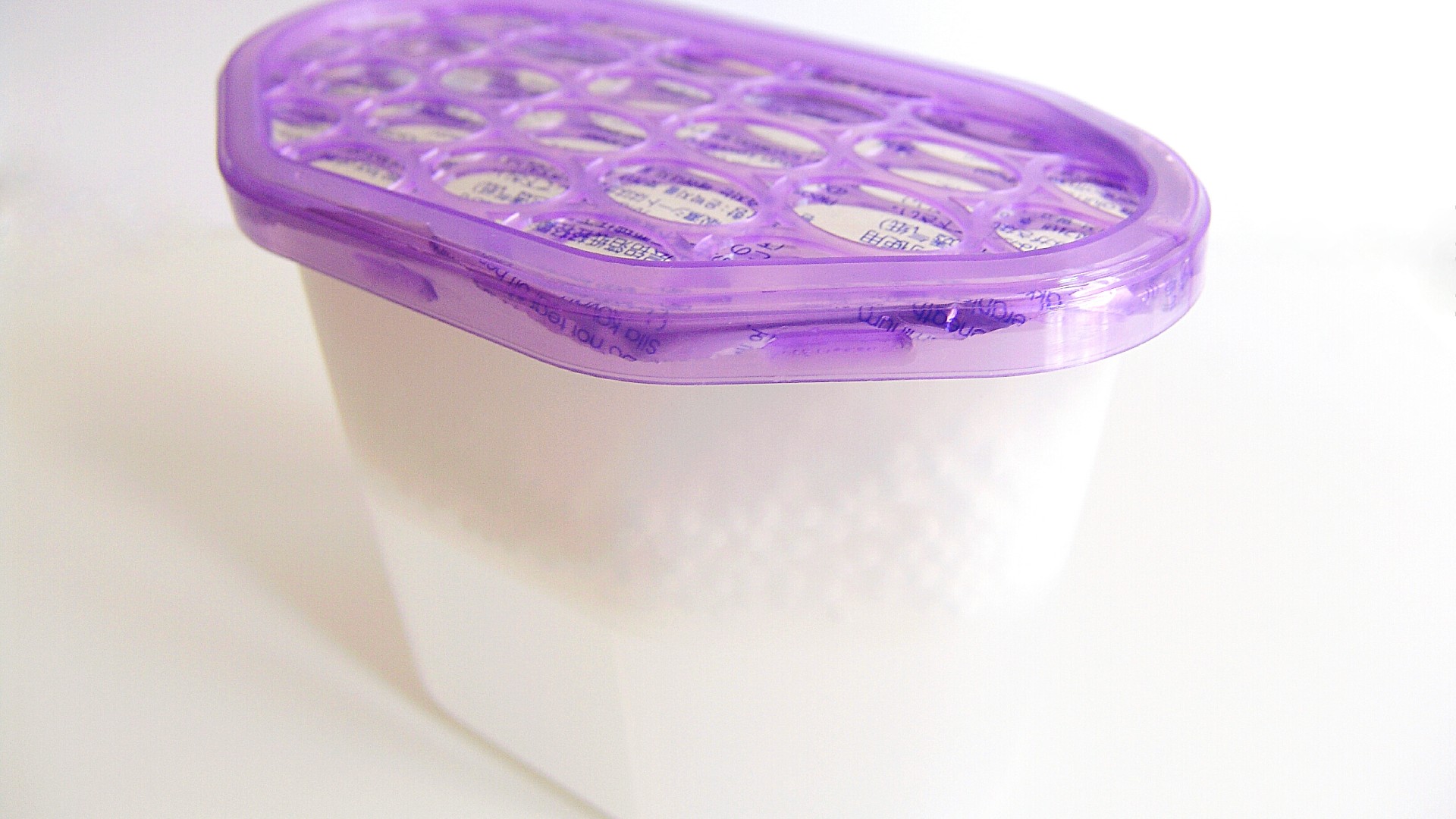
This material will, as mentioned, work to trap the water that circulates around your home before it is decanted into the lower half of the plastic bag. This section of the bag will therefore fill up with water as the weeks go by.
"Dehumidifier bags attract and hold excess moisture through adsorption," appliance expert, Simon Hughes at PriceYourJob says. "Unlike absorption, in which liquids penetrate materials, adsorption is the process of a solid holding molecule of a liquid or gas as a thin film. Silica gel is the most commonly used adsorption material for dehumidifier bags, as it is very porous."
In this sense, a dehumidifier bag works similarly to a regular dehumidifier machine, which collects moisture from the air before dispensing it in a tank, to be removed.
Once the bag is full of water, it will need to be removed from where it is hanging and replaced, if the bag itself isn’t reusable, to continue preventing the pesky build-up of moisture in your property and prevent condensation on windows.
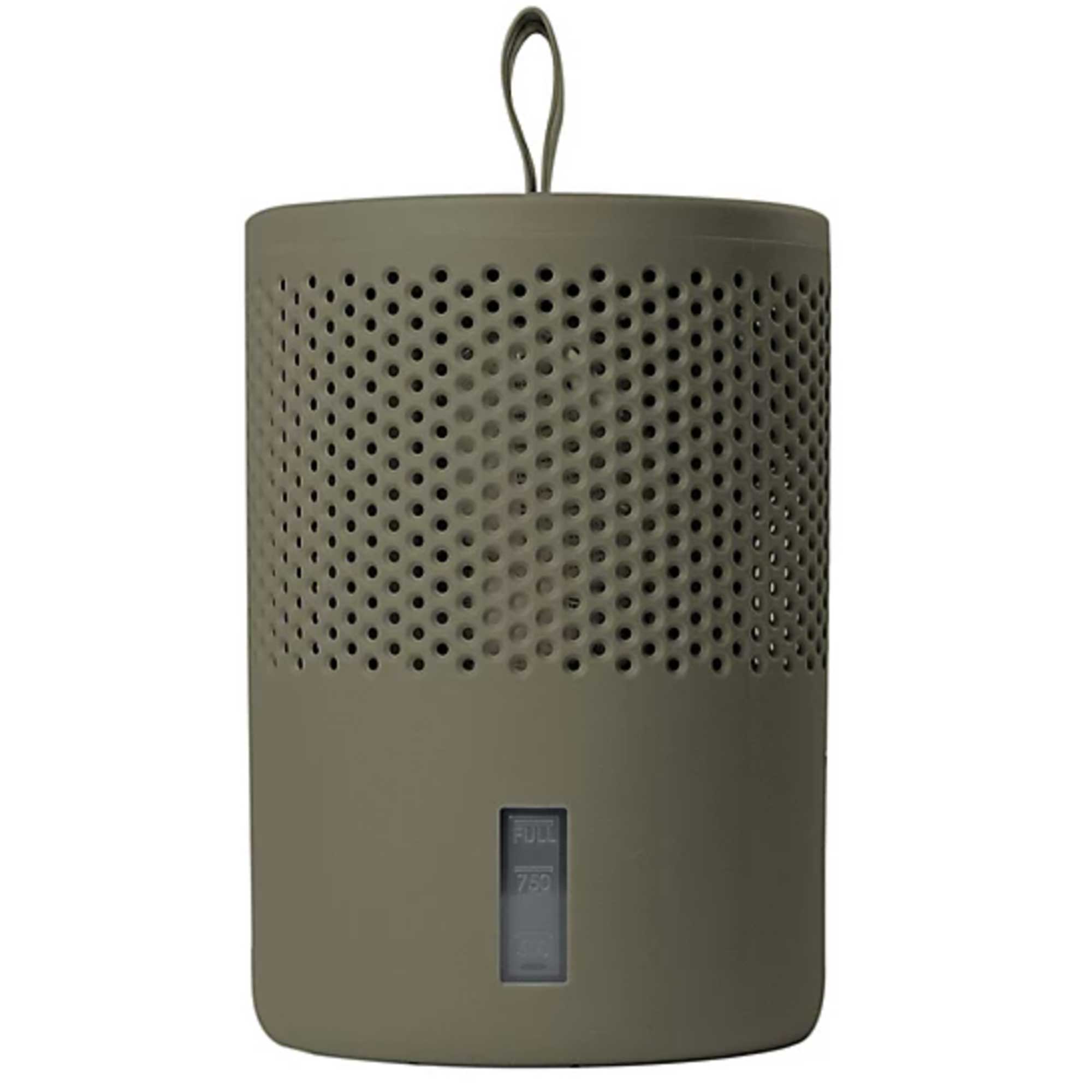
£26.99 | This dehumidifier is the perfect design for when you have to have it on show, because unfortunately other dehumidifier bags are not nearly as attractive. The compact model includes one bag 600g of moisture-absorbing crystals which lasts for up to 3 months
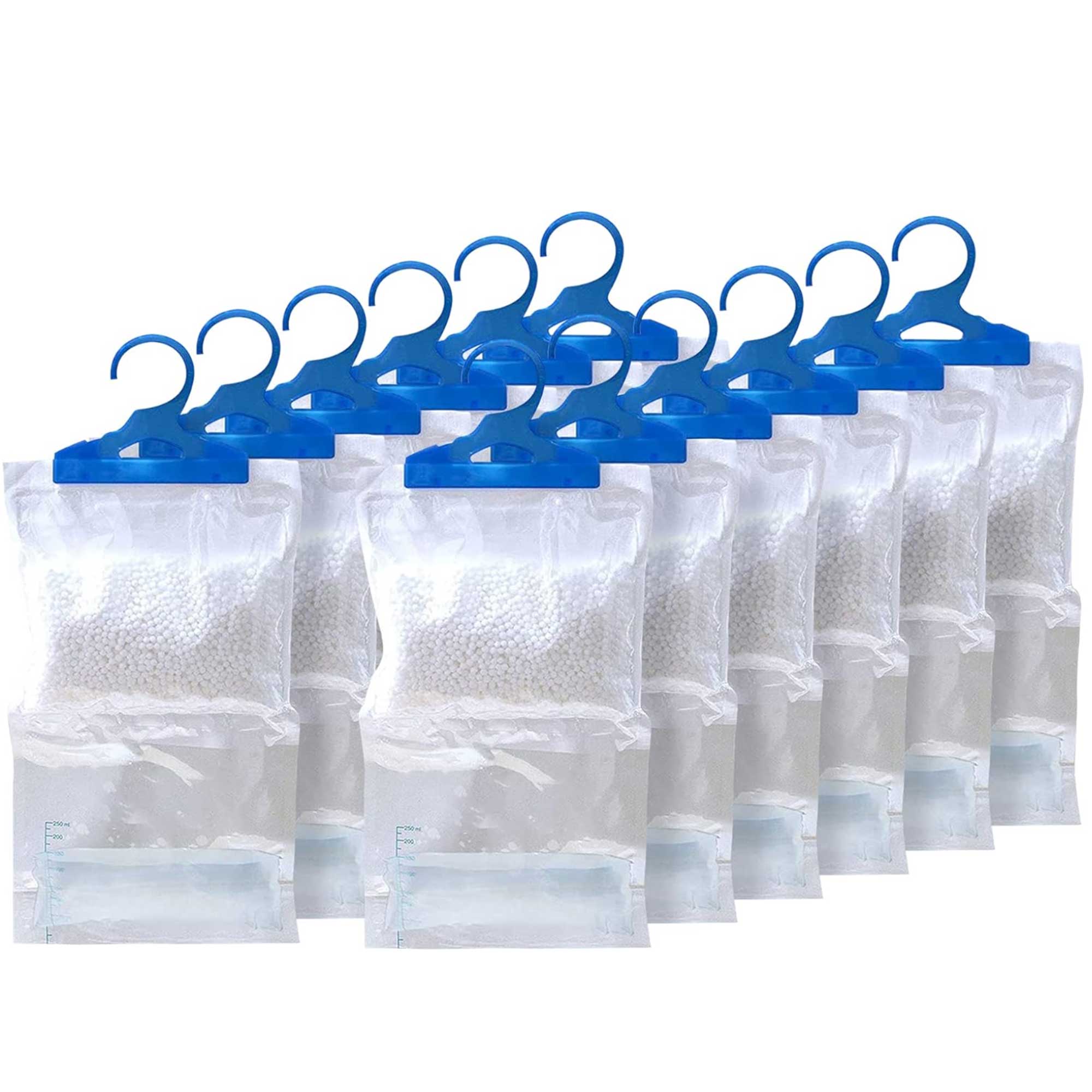
£10.30 for 12 | Complete with handy hanging hooks these simple dehumidifier bags are ideal for wardrobes to combat unwanted moisture. And fear not, the storage bags are leakproof to ensure they won't damage any items in your capsule wardrobe.
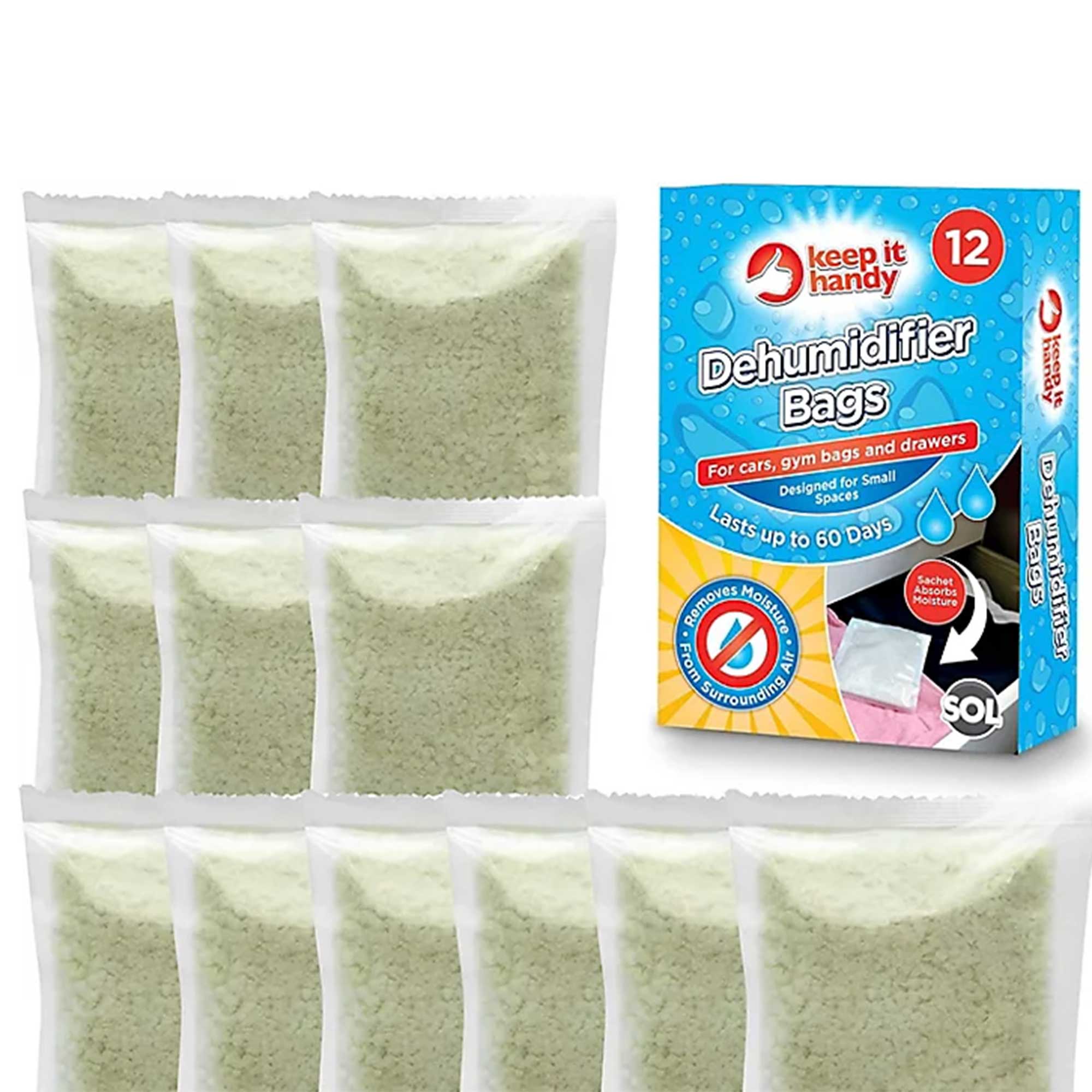
£16.99 for 12 | These small moisture absorber bags are for any small area of the home such as bathroom shelves, cupboards and drawers. The disposable moisture absorbers for the home work by collecting condensation at the same time they give off a cleaner & fresher scent. These are ideal when storing jumpers.

Simon Hughes has worked as an appliance expert for over 20 years and provides expert advice to PriceYourJob regularly. Simon still works in the field in addition to providing expert advice. Simon provides appliance diagnostics, repairs and advice.
FAQ
Do dehumidifier bags really work?
Their effectiveness when compared to a regular dehumidifier may be disputed, but dehumidifier bags are generally considered to be a helpful addition to your home if you suffer significantly from the nastier effects of damp, such as mould and excess condensation.
"Product quality can differ, but a high-quality calcium chloride desiccant dehumidifier bag will prove effective in preventing mould and the onset of other moisture-related issues where utilised," James explains.
Simon agrees that they can work well in damper homes. "Using dehumidifier bags in areas with high moisture levels can help to create a drier environment and protect your property and belongings from mould, mildew and bacteria growth,” he says.
They also have a range of benefits that dehumidifier machines can’t provide. "As the colder months start to take hold, dehumidifiers are an extremely beneficial asset in preventing dampness, condensation and mould from developing," James says. "Nevertheless, dehumidifiers come at a cost to buy, are quite large, and are generally a loss maker in terms of energy costs (this is how much a dehumidifier costs to run)."
"The bags, on the other hand, are a lot cheaper, and tend to cost under £20 – whereas dehumidifiers can cost over £100," James continues.
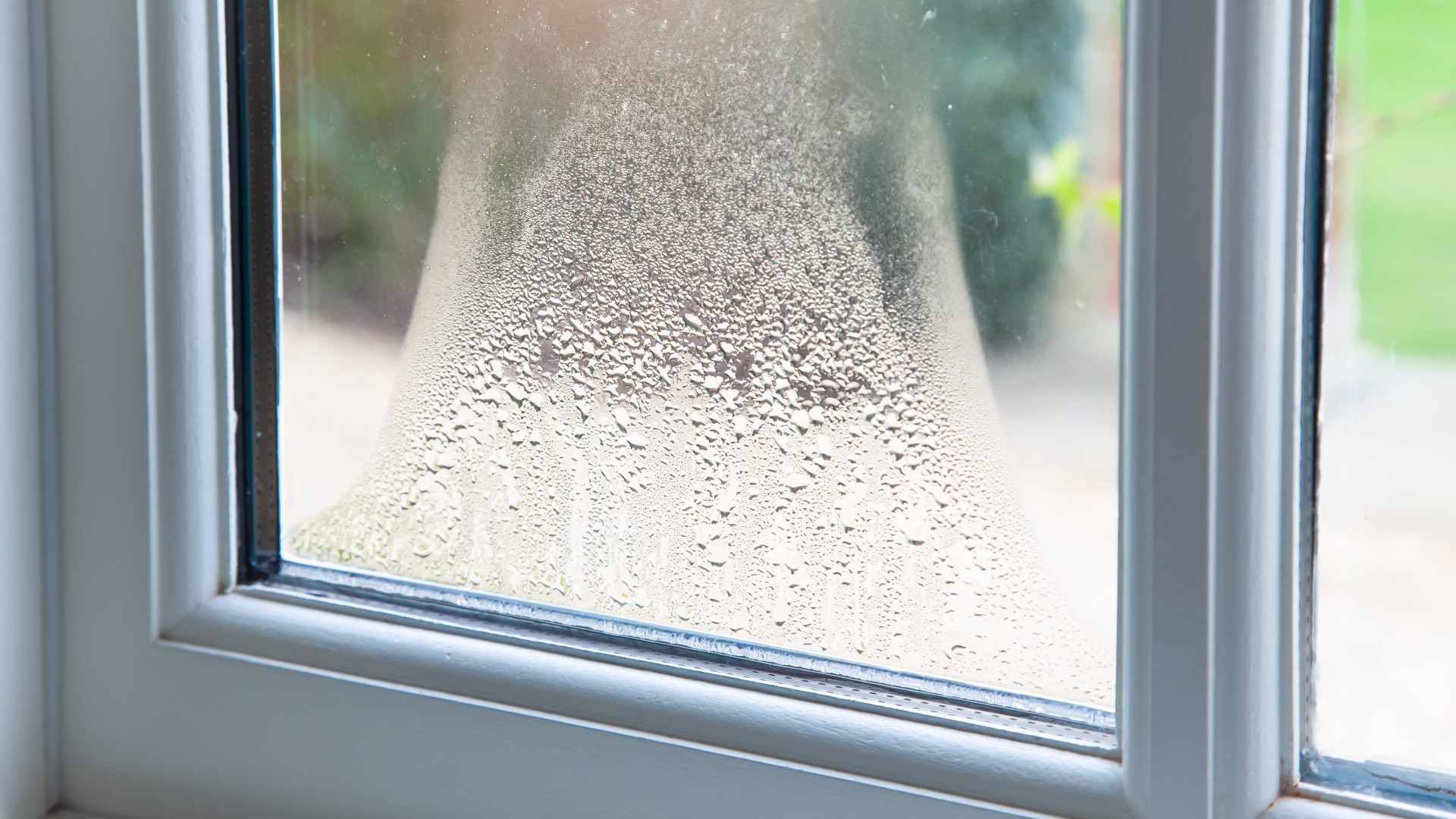
However, it’s worth noting that dehumidifier bags are most effective at drying out smaller areas only, appliance expert Brian Johnson at MyJobQuote explains. "Dehumidifier bags do work, although they’re only effective for tackling small areas prone to excess moisture, such as wardrobes with poor air circulation."
So if you’re hoping that dehumidifier bags, rather than an actual dehumidifier, might be the solution to your damp issue, it’s worth noting that they may not be the single most efficient way to keep your home dry, and should perhaps be used as more of a useful extra.
Brian explains that you’re likely best off investing in extra protections if you are particularly concerned about damp and mould in your property, or if you already have damp and mould appearing.
“If you have a problem with excess moisture throughout your house, you’re better off using a dehumidifier to tackle it, alongside fixing any root causes such as poor ventilation," he says.

Brian Johnson has worked as an appliance expert for MyJobQuote for four years and has worked in the industry for over 25 years. Brian continues to work for clients too, providing appliance diagnostics and repairs, while also providing expert advice to industry professionals and homeowners.
Where should you use dehumidifier bags?
Where you place a dehumidifier and where you use the bags will determine how effective they are. As mentioned, dehumidifier bags are most usefully placed in areas where a dehumidifier may not typically be able to extend its efforts – often considered the best dehumidifiers for bathrooms.
"Dehumidifier bags can be used in almost any area where there is excess moisture or dampness in the air," Simon shares. "But to get the maximum benefit from dehumidifier bags, it is important to place them strategically and where they will be most effective. Depending on where you are experiencing high levels of humidity they can be used in cupboards, wardrobes, cellars, storage areas, caravans, bedrooms and cars."
Smaller areas are where they should be put to use, Simon explains. "Dehumidifier bags are most useful in small spaces such as wardrobes and cupboards. In small spaces such as cupboards, wardrobes and cars a dehumidifier bag will work well to remove the excess humidity."
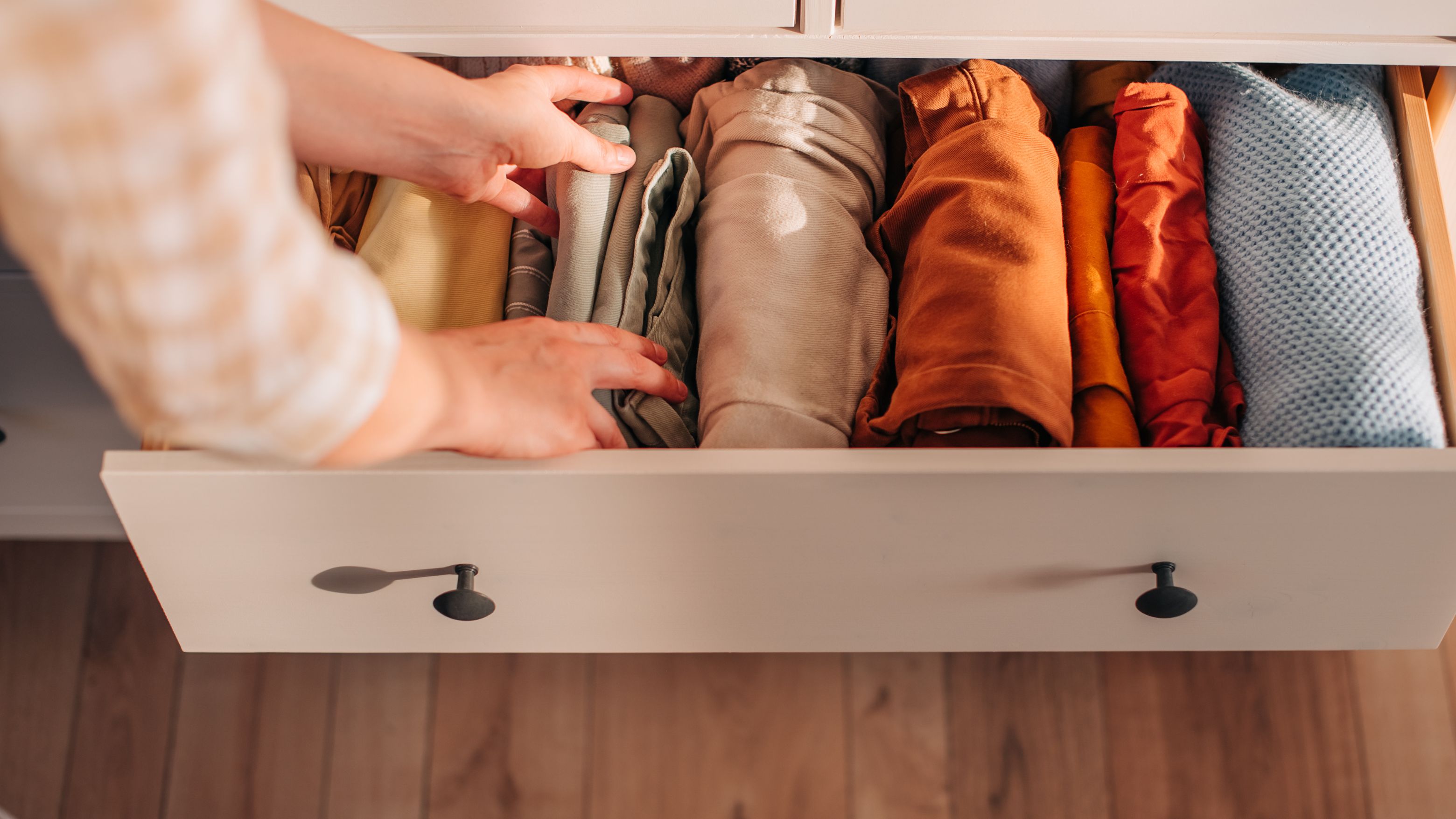
This is because dehumidifier bags, while useful, can’t work at the same high rate as a dehumidifier machine when it comes to removing moisture. Therefore they are best used as an extra layer of protection in these smaller, more specific spots.
Simon shares, “In larger areas, they will not do the same job as an actual dehumidifier, which can cope with greater humidity and bigger spaces.
"For example, dehumidifier bags will struggle to deal with higher humidity levels such as in a bathroom or kitchen. In these areas, a regular dehumidifier would be more appropriate." They’re also not anywhere near as efficient as a dehumidifier is when it comes to drying clothes, so they shouldn’t be used as an alternative, in this case, as a way to dry your clothes indoors.
Simon also advises checking a few stats on your dehumidifier bag before using it, to ensure it is as helpful as possible for reducing moisture. "Check the size of the area that it is suitable for to get maximum effectiveness, and if necessary, use more than one."
How long do dehumidifier bags last?
While a dehumidifier machine should have a lifespan of years, dehumidifier bags are more of a short-term solution. However, in many cases, they should last a relatively decent length of time, especially given their much more affordable price point.
Brian explains that their longevity mostly depends on the moisture levels within your home. "A dehumidifier bag can last up to a few months, but the greater the moisture levels the quicker it will need replacing." James shares that some can even last up to a year if you live in a dryer property.
As such, if you know that your property experiences high moisture levels, expect your dehumidifier bags to last just a few months instead.
If you’re unsure of when to replace your old dehumidifier bag with a new one, Simon explains, "Each bag will have a maximum capacity. They usually have an indicator to show when they need to be replaced – or dried out, in the case of reusable dehumidifier bags."
He also warns that, in the same way, you maintain your dehumidifier by cleaning it, you should keep on top of the maintenance of your dehumidifier bags. "You will also need to monitor the dehumidifier bags, checking them regularly to know when they require changing or drying out," Simon says.
How do you dispose of dehumidifier bags?
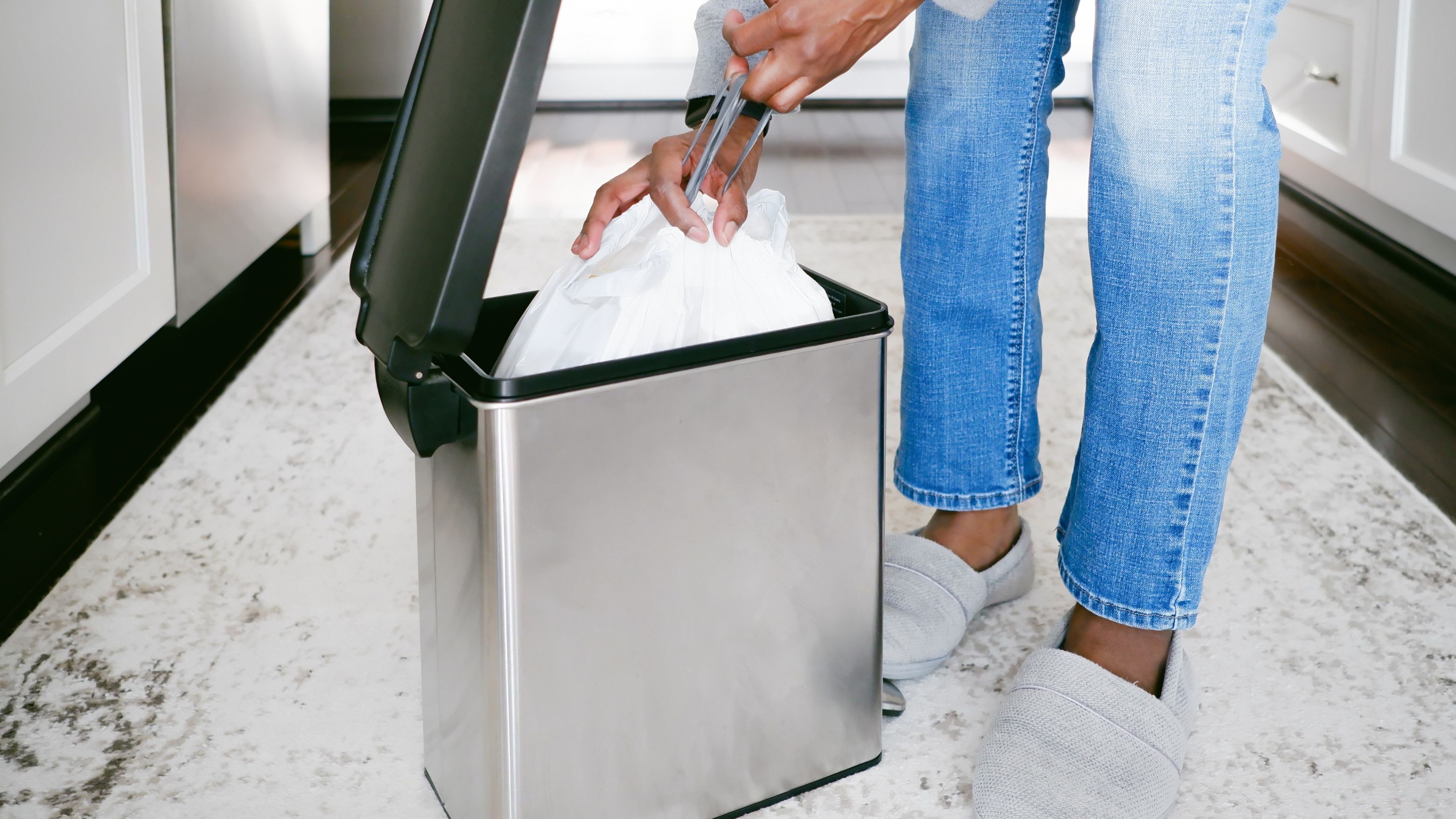
Due to the short-term life span of dehumidifier bags, there will come a time when you'll need to safely and appropriately dispose of them. The timeline will differ with each type there is but there is usually some common ground.
Nicholas Auckland, heating and energy expert at Trade Radiators says, "I would check the manufacturer guidelines of the specific bag. Each bag will be different as it depends on what the crystals are made of and how the bag is made. For many of the silica crystal bags, you can dispose of them with normal everyday rubbish."
However other types he explains will need to be emptied before you throw them away with the usual rubbish. Nicholas stresses the importance of checking and double-checking the manufacturer's guidelines so you don't run into any issues.
w&h's pick of the best dehumidifiers
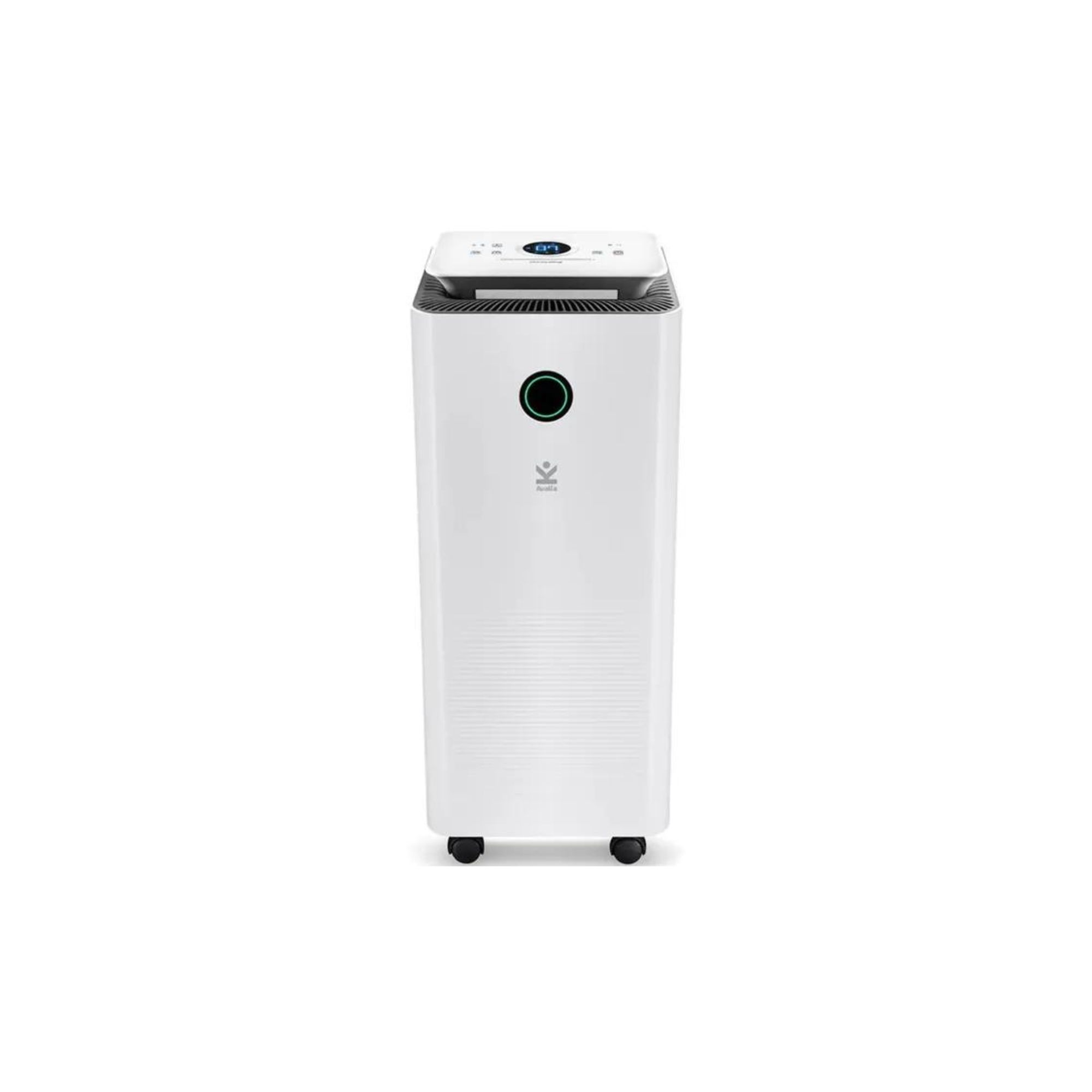
If you're looking for a dehumidifier that's large enough to hold at least 16L of water, sleek, space-saving, and will dry your laundry, the Avalla X-150 is your perfect match. Rated the best on our list, this machine left the air in our home clean and moisture-free.
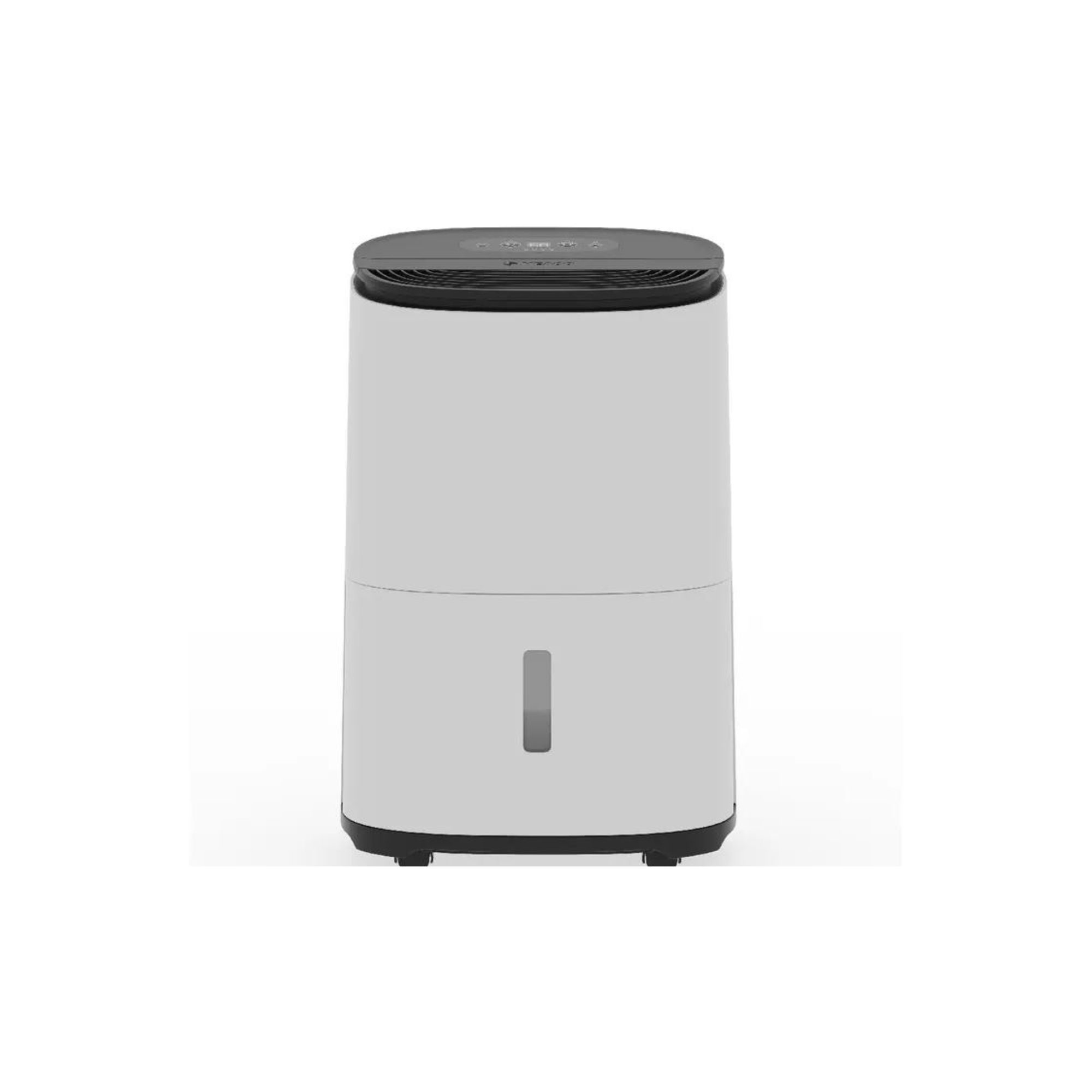
Our MeacoDry Arete One review found this to be an all-around great dehumidifier. It's simple, easy to use, and quiet for families with little ones. It even has a laundry mode, handling your home's moisture and wet clothes.
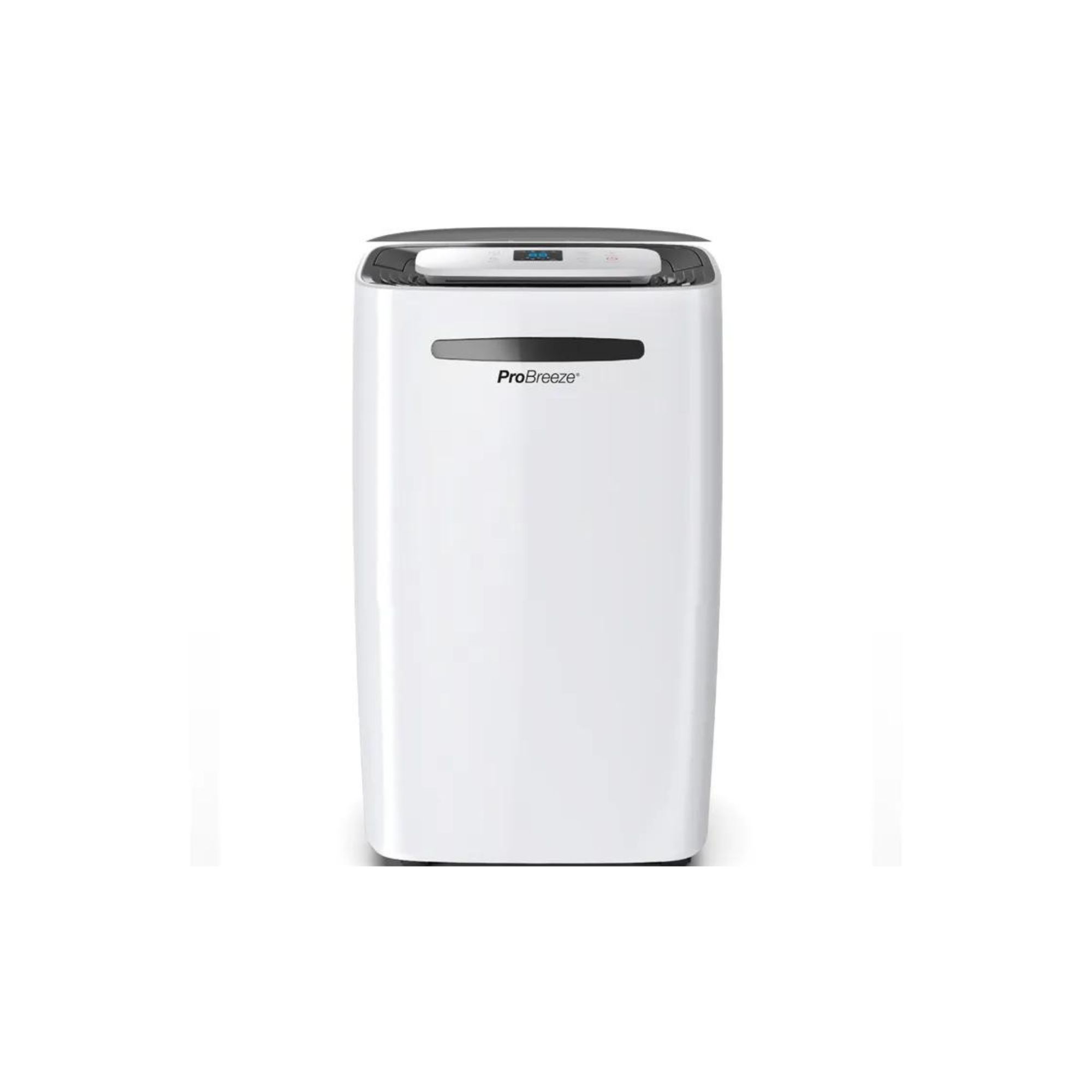
A wet, damp room is the worst, but thanks to this Pro Breeze model being able to hold a large capacity of 5.5L of water, removing 20L per day, your room will be left clean and moisture-free.
Though dehumidifier bags are safe to use in the home, you may want to be cautious with them around little ones.
James explains, “Although the silica gel is usually non-toxic, it can be a choking hazard, particularly for small children and animals. As such, the bags should also be in a space that is out of reach of animals and children.” And curious pets.
Amy Hunt is an experienced digital journalist specialising in homes, interiors and hobbies. She began her career working as the features assistant at woman&home magazine, before moving over to the digital side of the brand where she eventually became the Lifestyle Editor up until January 2022. Amy won the Digital Journalist of the Year award at the AOP Awards in 2019 for her work on womanandhome.com.
- Emily SmithDigital lifestyle writer
